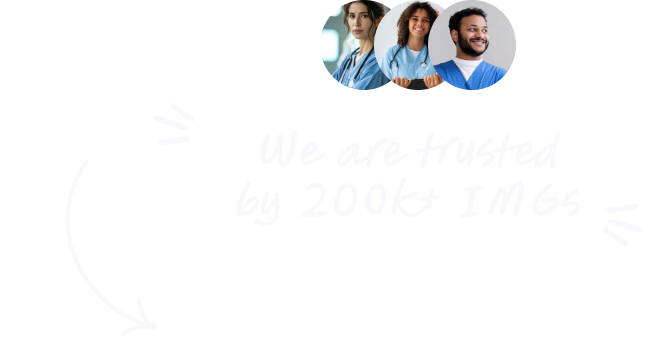The Caribbean Myth
Many US International Medical Graduates (US IMGs) from Caribbean medical schools often face unique challenges and misconceptions regarding their education. These graduates receive medical training that parallels the education provided to their counterparts in the US, yet they are still categorized as IMGs when applying for residencies in the United States. This dual identity can lead to misunderstandings about the quality and content of their education, causing unnecessary worry and anxiety among Caribbean graduates.
Caribbean medical schools are known to be rigorous, often following a curriculum similar to those used in the US, including teaching in English and preparing students for the same USMLE exams that US medical students take. Despite this, some may still view these graduates differently, primarily because of their international status rather than the quality of their education.
For Caribbean IMGs, it's important to effectively communicate the equivalency of their education and clinical training to residency programs and peers. They should also focus on dispelling myths and clarifying any misconceptions through open dialogue and by showcasing their clinical competencies and academic achievements during the residency application process. This approach can help reduce the stigma and ensure they are evaluated on their merits rather than their school's geographic location.
Residency programs value non-Caribbean IMGs over Caribbean IMGs.
It's a common misconception among Caribbean IMGs that they must limit their applications to programs explicitly known as Caribbean-friendly. However, this approach is not necessary. All IMG-friendly residency programs are open to considering candidates from a wide range of international medical schools, including those in the Caribbean. It’s crucial to base your residency program choices on accurate information and thorough research, not on rumors or assumptions.
The nature of the residency application process is dynamic, and programs are continually evolving in their acceptance criteria and diversity of their residents. By not applying due to concerns that a program hasn't historically accepted Caribbean IMGs, you might miss the opportunity to be a trailblazer for your peers. Presenting a strong application might not only secure a position for yourself but also pave the way for future applicants from your institution.
Therefore, expand your scope and apply to a variety of programs where you meet the criteria. This proactive approach can potentially alter a program's perspective on Caribbean IMGs based on your performance and integration into their system. Always remember, each application you submit could be the one that changes the course for you and others following in your footsteps.
Click for more Caribbean IMG information
Tips for US IMGs
It’s always important to have confidence as a residency candidate. Although it may be tempting to become over-confident as a US IMG, you must maintain the perspective of an IMG applicant. Below are some tips and recommendations to help you maximize your application.
Leverage Support from Your Medical School
- Review Academic Documents: Engage with your medical school to review and ensure the accuracy of essential documents like your medical school transcript and Medical Student Performance Evaluation (MSPE).
- Utilize Available Resources: Determine how your medical school can support you through the application process, from document preparation to providing guidance on meeting US residency requirements.
Diligently Prepare Your ERAS Application
- Letters of Recommendation (LoRs): Obtain specialty-specific LoRs that reflect your competencies and readiness for the specialty you are applying to.
- Personal Statements: Write compelling, specialty-specific personal statements that clearly articulate your interest in the specialty and how your experiences have prepared you for it.
- MyERAS Application: Thoroughly complete all sections of the MyERAS application. Pay special attention to the descriptions in the Hobbies and Experiences sections; provide details that highlight your unique skills and attributes.
- Error Checking: Ensure your application is free from errors. A well-polished application indicates professionalism and attention to detail.
Strategically Select Residency Programs
- Research Program Requirements: Even as a US citizen, you are considered an IMG if you graduated from a medical school outside the US. Focus on applying to IMG-friendly programs. Review each program's requirements carefully, especially those concerning IMGs and visa policies.
- Broaden Your Applications: While it is crucial to apply to IMG-friendly programs, also consider a broader range of programs where you meet the criteria. Each additional application increases your chances of matching.
Apply Widely but Wisely
- Number of Applications: It is recommended to apply to a minimum of 100 programs per specialty to maximize your opportunities. Though costly, this approach can significantly enhance your chances of securing interviews and, subsequently, a match.
- Cost Consideration: While applying widely is advisable, be mindful of the financial burden. Plan your finances accordingly or seek financial advice or assistance if necessary.
Maintain a Balanced Confidence
- As a US IMG, it's essential to remain confident yet humble. Recognize that even as a US citizen, if you've obtained your medical degree abroad, residency programs will still consider you as an IMG. This perspective will help you tailor your application appropriately.
By following these tips, US IMGs can create a strong application package that showcases their qualifications and alignment with prospective residency programs.
Smart residency program search
in one click.


